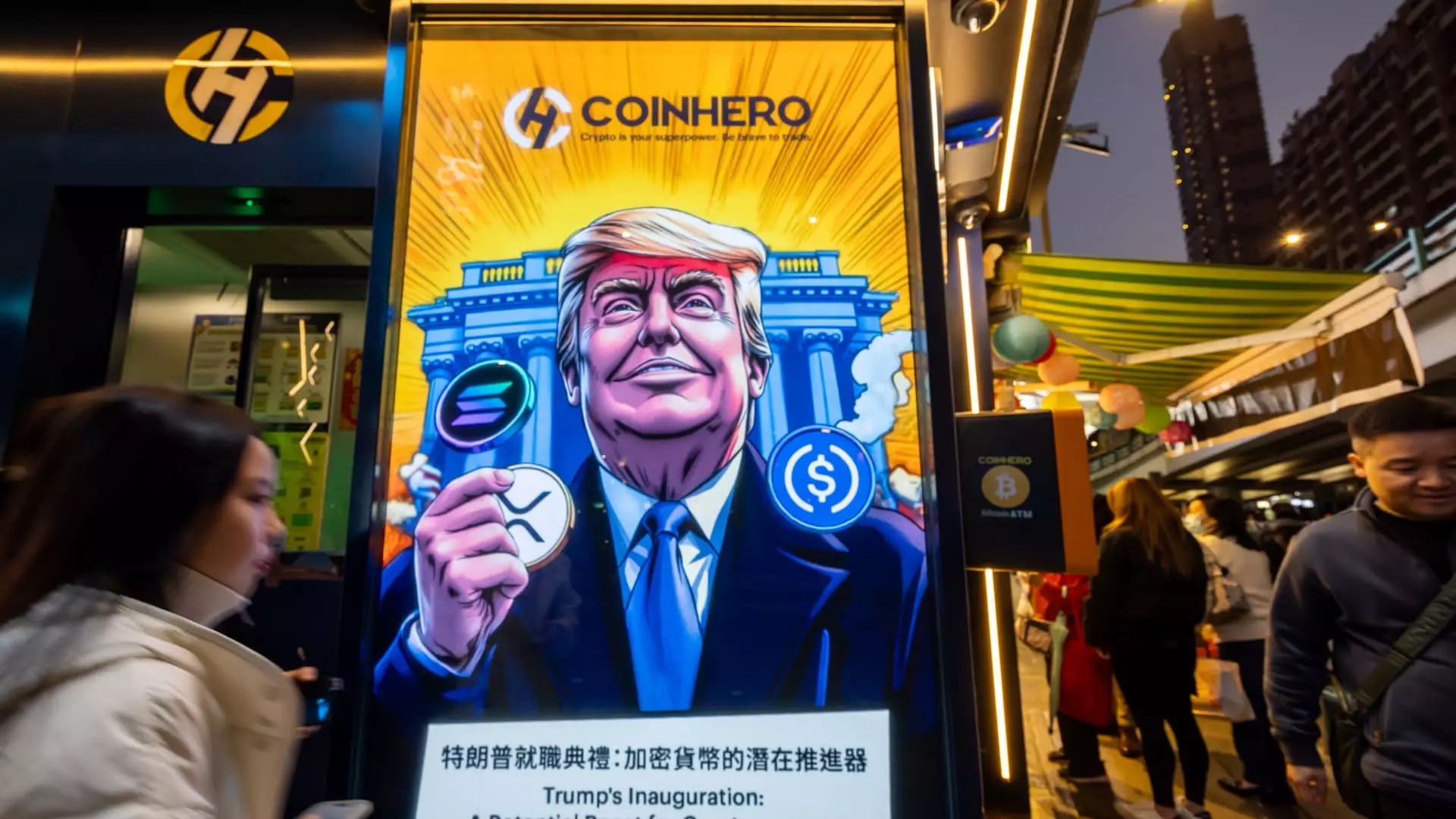The rise of the $TRUMP meme coin is more perplexing than it is promising. It surged by over 50% in mere hours, instigated by an audacious announcement. The allure of a dinner invitation with the former president himself has evidently captivated investors enough to inflate this phantasmal currency’s net worth to a staggering $2.7 billion. On the surface, it feels like a parody of a political fundraising stunt rather than a genuine cryptocurrency initiative. However, this bizarre blend of politics and digital finance accentuates a troubling trend: the commodification of political identity.
A token offering a dinner in the White House encapsulates not only the unabashed promotional effort towards NFT-like experiences but also hints at a willing audience of Trump supporters eager to merge financial speculation with personal loyalty. The idea to host an exclusive meal with top token holders speaks to a culture where politics and profit intertwine in unsettling ways. It is as if we are witnessing a turning point where political loyalty is literally reducible to potential profit margins.
The Promises and Pitfalls of Speculative Investing
Much like a hot air balloon, $TRUMP has inflated dramatically only to risk plunging back to earth. Following its meteoric rise, previous volatility should remind investors of the precariousness of meme coins. Although many rushed to buy in, initial excitement fizzled out soon after the high, proving the overwhelming influence of speculative enthusiasm on the cryptocurrency market. Within a matter of days, the coin’s value took a nosedive, reminiscent of past crypto fads, raising pertinent questions about sustained value and intrinsic worth.
Just 20% of the $TRUMP supply is eligible for trading, raising immediate red flags about liquidity. The remaining 80%, still locked under a multi-year vesting schedule, is held by insiders who stand to benefit disproportionately when the lockup ends. It is disconcerting that the structure resembles that of a pump-and-dump scheme, where profits seem largely concentrated among a select few. This begs for a deeper examination of the ethical implications of such a venture: can a currency with such clear conflicts of interest ever foster genuine trust?
The Role of Regulatory Oversight and Cryptographic Evolution
Amid the chaos, the SEC has conveniently distanced itself, implying that meme tokens like $TRUMP are not classified as securities. This leads to pressing concerns about investor protection and market integrity. Without appropriate regulation, the crypto space risks becoming a playground for opportunists who seemingly operate above accountability. This lawless environment may embolden the creation of more tokens that ride the coattails of celebrity names rather than pursuing genuine utility.
In many ways, this scenario reflects a larger crisis within the cryptocurrency domain. The lack of substance behind many coins, including high-profile entries like $MELANIA, speaks to an ongoing battle between innovative financial technology and charismatic exploitation of public sentiment. This crypto-culture is democratizing finance, but it also gives rise to market platforms fuelled by superficial hype rather than genuine innovation, begging for an assessment of accountability in this space.
Investors must grapple with their desires in a system marked by both potential and peril. As we witness the chaotic interplay of politics and cryptocurrency, the outcome remains uncertain, and for the discerning observer, the stakes couldn’t be higher.


Leave a Reply